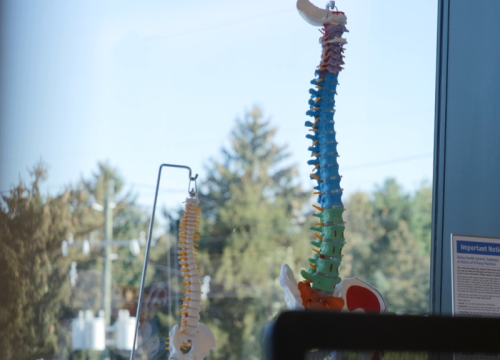Valley Health System’s pulmonary arterial hypertension and interventional cardiology teams offer invasive cardiopulmonary exercise testing (iCPET) to help patients find answers to their unexplained exercise-induced shortness of breath.
What is iCPET?
iCPET is an outpatient test that combines right heart catheterization (where a thin catheter is inserted into the neck to measure blood pressure) with cardiopulmonary exercise testing, and provides physicians with a comprehensive evaluation of the cardiopulmonary function.
Cardiopulmonary function refers to how well the heart, lungs, and blood vessels work together to supply the body with oxygen.
The goal of this test is to help diagnose exercise-induced pulmonary hypertension or valvular lesions, which may not have previously required intervention, that react to exercise.
The test involves:
- Taking a baseline breathing test while at rest.
- Performing a right heart catheterization.
- Setting up monitoring equipment, including electrodes, a blood pressure cuff, and a mask to measure respiratory function.
- 10 minutes of exercise on a stationary bike, which will increase in intensity until the patient’s maximum effort is reached.
- Performing a cool-down.
This test may take anywhere from 45 minutes to an hour to complete. On average, patients will go home within two to three hours after monitoring.
How is iCPET Different Than a CPET?
The difference between an invasive cardiopulmonary exercise test (iCPET) and a cardiopulmonary exercise test (CPET) is the insertion of catheters. The catheters used as part of the right heart catheterization help to provide a comprehensive evaluation as to whether the heart or lungs are contributing more to your symptoms.
Who is Eligible to Have iCPET?
Patients who have had standard evaluations, including echocardiograms, computed tomography (CT) scans, stress tests, pulmonary function tests, and even imaging of the lungs, and have shown no cause for their exercise-induced shortness of breath, can consider iCPET as an option.
Benefits of iCPET
While the cause of shortness of breath can be diagnosed with an iCPET, the iCPET results could help diagnose less common causes. It also gives a deeper look at both heart and lung function during exercise. The results also help your care team determine if further interventions are needed.
Why Choose Valley for iCPET Testing?
- Team-based care: Valley is proud to determine whether the heart or lungs are causing exercise-induced shortness of breath. Once identified, our pulmonary arterial hypertension and interventional cardiology teams will collaborate with the patient’s primary care clinician to offer appropriate treatment.
- Quick results: Results of iCPET are typically given within two days of the test, giving patients clarity on unexplained shortness of breath sooner.


























